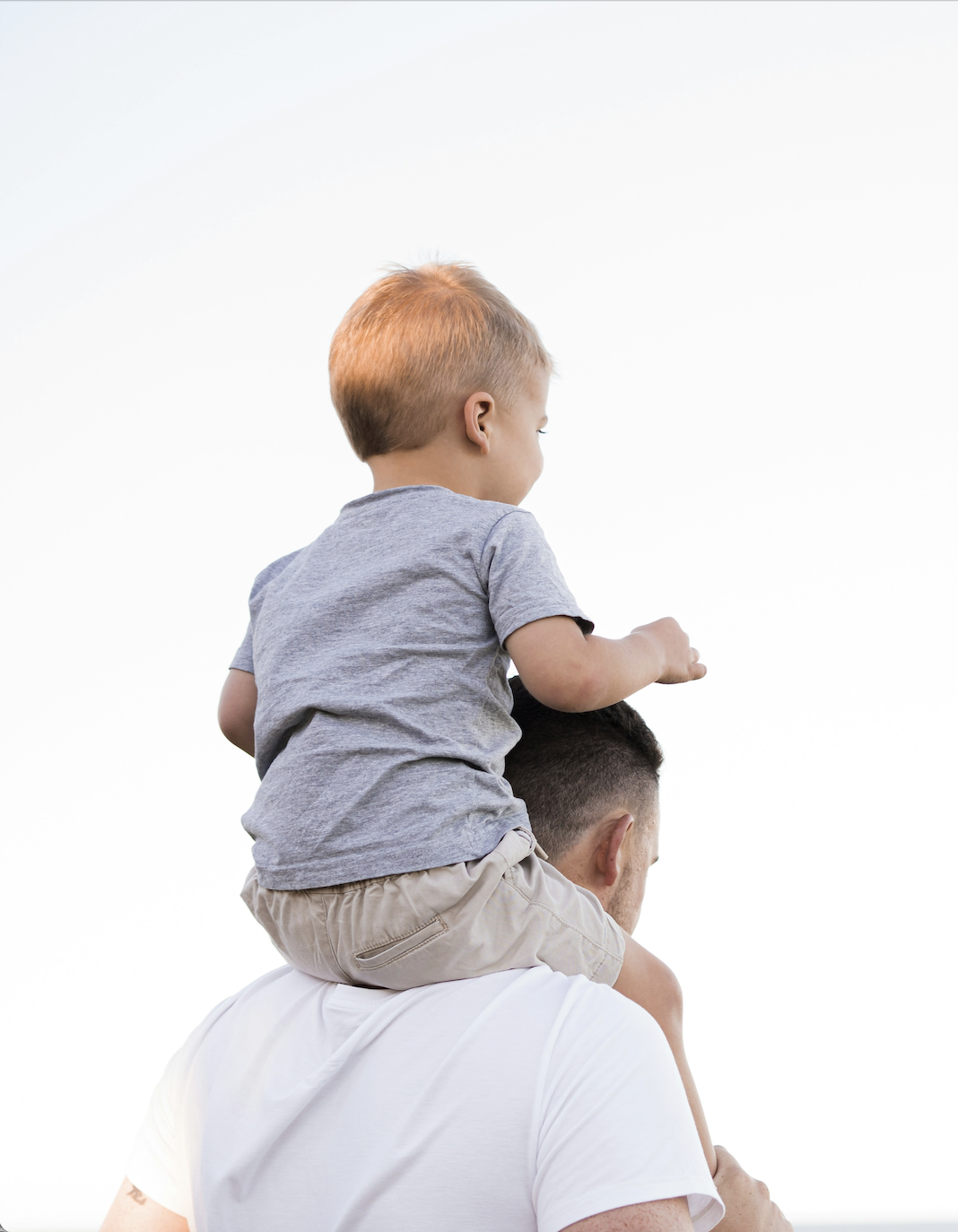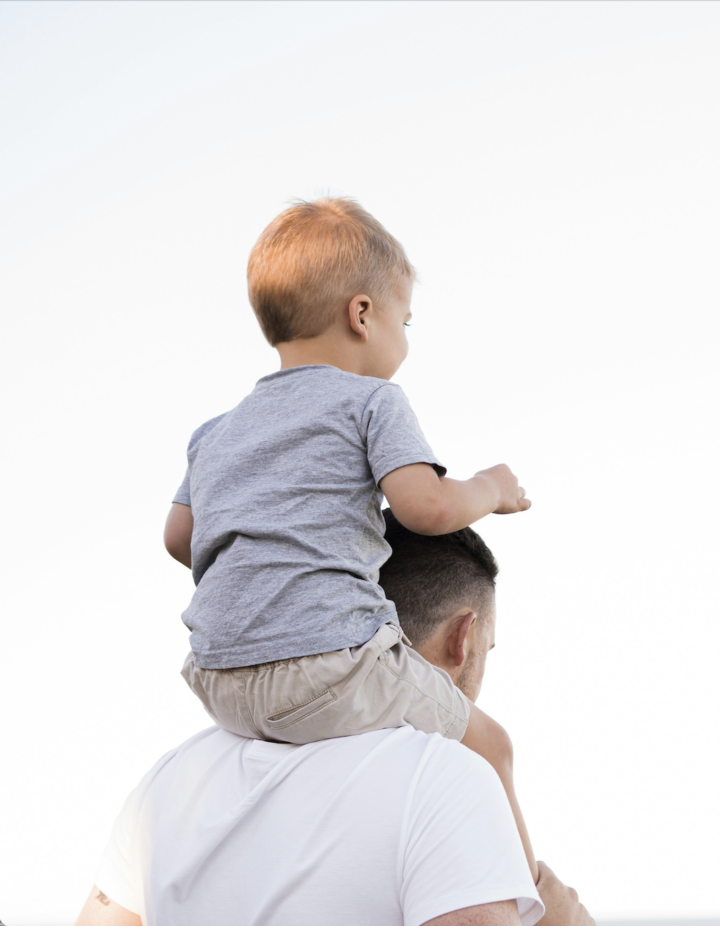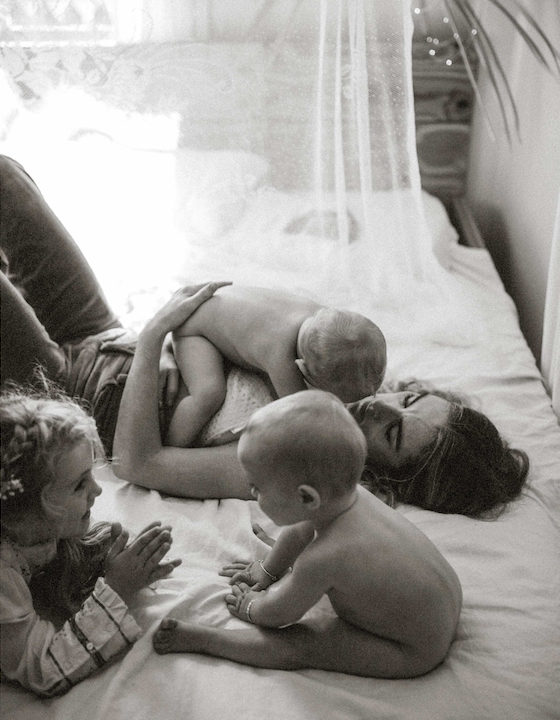When my partner and I welcomed our first child, we had the rare privilege of both taking extended parental leave. I had six months of paid leave, supported by my employer, and encouraged by my boss and those around me. (Yes, I know, I’m incredibly fortunate. But also to future dads: take the leave.) But even with the time carved out, I didn’t fully anticipate how transformative those months would be. I went into it expecting to help; I came out of it a parent. What I gained was not only a deeper connection with my child, but a fundamental shift in how I saw myself, as a parent, a partner, and a contributor to the daily, often invisible, work of family life.
In the early weeks, I did what many dads do – I focused on being useful. I changed diapers, became an expert swaddler, washed pump parts, made sure the dog was taken care of, made sure we all were eating – all in support of my wife’s physical recovery. We had two months of leave together immediately after our son’s birth. Then I went back to work for two months, taking the balance of my leave after my wife expected to return to her job. I realized on my leave, when I wasn’t pulled back to a desk or swept up in meetings, something shifted, I wasn’t just “helping” anymore. I was managing. I noticed what size diapers we were almost out of. I knew when the next pediatrician visit was and took our son to the appointment, list of questions in-hand. For the first time, I truly understood what it meant to carry the mental load.
What struck me most was how much of the parenting work was invisible until you lived it day after day. There are no medals for remembering to replace the wipes in the diaper bag or for waking early to wash bottles. But these tasks shape the rhythm of family life and taking them on consistently gave me a new sense of responsibility, not just in action, but in awareness. I began to anticipate needs before they became problems. I wasn’t waiting to be asked. I had become the “default parent” – not out of obligation, but out of presence.
That shift in role changed how I showed up in my marriage too. The imbalance that often creeps into new parenthood – that we saw in our long conception process or when my wife was pregnant (she was so frustrated with the system – and let’s be honest, me – that she built an app to bring partners along the process – but that’s a story for a different article) didn’t settle in. We checked in with each other more regularly. We got the Fair Play cards to see where we were overindexing or where we wanted more support. We divided tasks not just based on capacity, but on commitment to equity. Parental leave gave me the time and mental space to build those habits from the start. And perhaps most importantly, it gave me empathy, a lived understanding of how heavy the load can be, and how lonely it feels when no one else is carrying it.
The shift really crystallized for me when I decided to take our 8-month-old son on a solo trip from San Francisco to Pittsburgh to visit my parents and brother. I handled the packing, mapped out what I’d need my parents to have ready (diapers, wipes, pack & play and carseat on loan from a friend), and carefully planned the logistics of flying with a baby. (One mistake: pack the formula in your carry-on. Trust me, nothing humbles you faster than waiting on baggage claim with a screaming baby because he had four bottles during our 5 hour flight.) What struck me most during that trip was the reaction from others. Friends and even strangers gave me so much credit for traveling solo with a baby. And while it was hard and I was proud of handling it, I didn’t think it was that out of the ordinary because managing our son’s needs was simply part of my day-to-day, not an exception.
Now, with our son nearing his third birthday, I realize just how deeply ingrained this fundamental shift has become. The systems we put in place during my leave continue to be our bedrock. Even though we’re both working full-time jobs, navigating the demands of work alongside parenting, the muscle memory is still strong. I still know when we’re running low on his favorite toddler snacks, and I’ll add them to the grocery list proactively. (Note, having a shared grocery list on our phones has been revelatory – now whoever gets the groceries knows what we need.) I still track his development milestones and make a mental note to bring up that new quirk at the next check-up. It’s not just about managing tasks; it’s about sustaining that critical awareness of the household’s needs and our son’s well-being.
Six months of leave didn’t just make me a better parent in the moment. It gave me the chance to truly see, feel, and own the real work of raising a child – not just in the joyful, Instagram-worthy moments, but in the tiny, exhausting, essential ones that form the bulk of daily life. That foundation has stayed with me and I continue to be a “default parent,” not by accident, but by design, and it’s truly one of the things I’m most proud of.
This transformation has redefined my identity in profound ways. I am not just a father; I am an equally capable and responsible co-parent. The confidence I gained in those six months, knowing I could single-handedly manage our son’s needs and the household, is something I carry with me every day. It’s a quiet strength that manifests in how I engage with my family, how I advocate for equitable parenting among my peers, and how I approach every aspect of my life. My leave wasn’t just a break from work; it was a true education in what it truly means to be a parent, and it equipped me to carry my share of the mental load with awareness, intention, and love.
Tony shares his life with wife Ashley Hawn, Co-founder & Chief Business Officer of Labour The App, a new app for couples from planning through pregnancy and postpartum.




